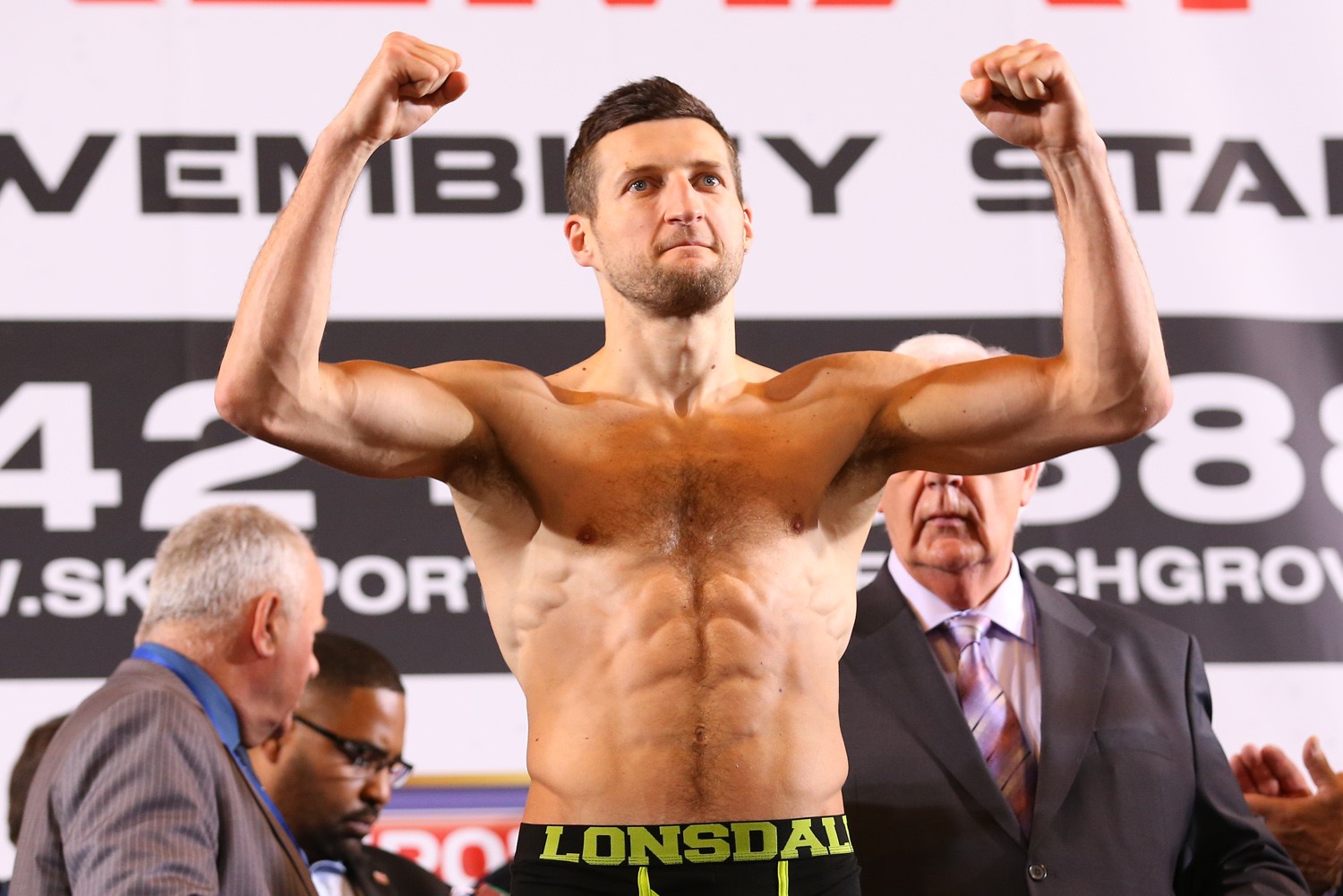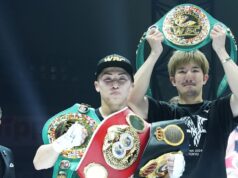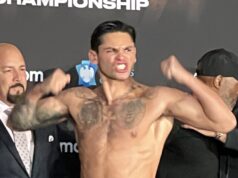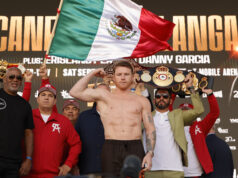By Bart Barry-

Last week British super middleweight Carl “The Cobra” Froch announced his retirement, ending an unusually fine contemporary prizefighting career on an unusually high note. Froch’s final instant in a prizefight was his best – spearchiseling George Groves in a full Wembley Stadium on May 31, 2014 – and if Froch needed 14 months to be certain that was so, it’s altogether forgivable.
We like best the athletes to whom we relate best, superficially, profoundly, however – those men who exhibit qualities we like in ourselves but more so. To love Froch, one didn’t have to be an arrogant bastard reveling in expressions of masculinity, no. But it sure did help.
My favorite moment of Carl Froch’s career came not in a fight but a chat with fellow Brit George Groves, whom Froch stopped twice, and came in the leadup to their aforementioned, and in Froch’s case aforereiterated and aforereiterated, rematch. It wasn’t any one word or phrase or look or gesture, the second half of their chat was rich with too many, but rather the way Froch looked inside at himself, a posture he adopts often – for no one is as enchanted by the thought of Carl Froch as Carl Froch – and followed a process like: Perhaps this guy does know something about me that eludes me, maybe I am not everything I believe I am. No, wait, what could I believe – not imagine, but actually believe – I am that I am not? I stand by my belief, I am as I say I am, and I’ll hear no more dissent.
Froch bent where Groves was rigid, Froch examined himself from Groves’ seat, considered himself in an unfamiliar light, then invested his conclusion – he’s wrong about me, and I’m right – with even greater force. Then Froch imposed himself on George Groves, and before 80,000 of his countrymen, a lamplike number summoning its genie no matter how often Froch rubs it, Froch struck Groves with the best punch of his career, reducing Groves from petulant rival to beginner origami.
In an instant Froch had a chance to end his career at its highest moment, something nearly no boxer has done in our sport’s deep history, and one feared he mighn’t – that what he calls the “fighting machine” he makes himself into might cause a sloppy thing with Julio Cesar Chavez Jr., ever a sloppy thing, or a decision loss to Gennady Golovkin (if Golovkin could take Froch’s power in the later rounds, something Golovkin’s resume does nothing to assure). Instead, Froch looked inside at himself once more, projecting the relentlessness and brutality and boredom and doubt of a championship-caliber training camp, and realized there was little in life he desired less than another experience like that.
Boxing has so very few happy endings it should fill aficionados with gratitude much as any other emotion th’t Froch left our sport with wealth and wits, accomplishment and vindication.
The third time I saw Froch fight, his painfully forgettable tilt with PBC prototype Andre Dirrell – 10 parts athlete for every one part fighter – I wrote, “(Froch) really wants to fight even if he often seems not to know how.” That desire to fight, to lower his head and swim forward winging wide punches at a rate proportionate to his fatigue, was what made Froch unique, in large part because it actually worked.
Men who have never fought, who’ve not clenched their hands in fists and punched men square in the face, often beseech others in a fight to race forward with lunatic aggression, consequences to the wind. For reasons psychology understands well as biology, though, a man in a fair fight is more frightened of having his reputation harmed than his person; embarrassment concerns him more than pain. Only fighters who’ve planned to race forward wildly, and prepared themselves for the feat, can turn the trick in hot blood. All the rest of us stall, our frustration steering us towards paralysis, to a point where we approach targethood and view another man’s aggression, another man’s attempt at our unconsciousness, that is, favorably, almost thankfully – like Oscar De La Hoya silently beseeching Manny Pacquiao to knock him out because such an end would be multiples more honorable than quitting in full consciousness like De La Hoya did in his final instant as a prizefighter.
Froch was one man who did what the inexperienced ask every prizefighter to do: No matter how tired he was, Froch pressed forward wildly, not hopelessly, in a bid to take confrontations wholly out of the organized athletic realm and into something more primal. Subsequently, even Froch’s losses ended nobly. Review his 11th round with Andre Ward, when the eventual winner of the Super Six tournament – on a once-excellent network that no longer fears embarrassment – and one of this generation’s great fighters, Ward, desperately clinches, his mouth wide open, his knees softened. The final three minutes of Froch’s only other career loss, when he got decisioned narrowly in 2010 by Mikkel Kessler during the same Super Six, a loss Froch avenged just as narrowly in 2013, are a symphony of blood and violence and will, both men leaking from deep cuts over their eyes, neither man appearing to care who gets rendered unconscious so long as someone does.
During the 3 1/2-year prime of his prizefighting career, Froch went 7-2 (2 KOs) against Jean Pascal, Jermain Taylor, Andre Dirrell, Mikkel Kessler, Arthur Abraham, Glen Johnson, Andre Ward and Lucian Bute. No man with Carl Froch’s talent did more great fighting, no contemporary prizefighter, in other words, wrung more from his natural ability. The Nottinghamshire Cobra will be missed sorely.
Bart Barry can be reached via Twitter @bartbarry











